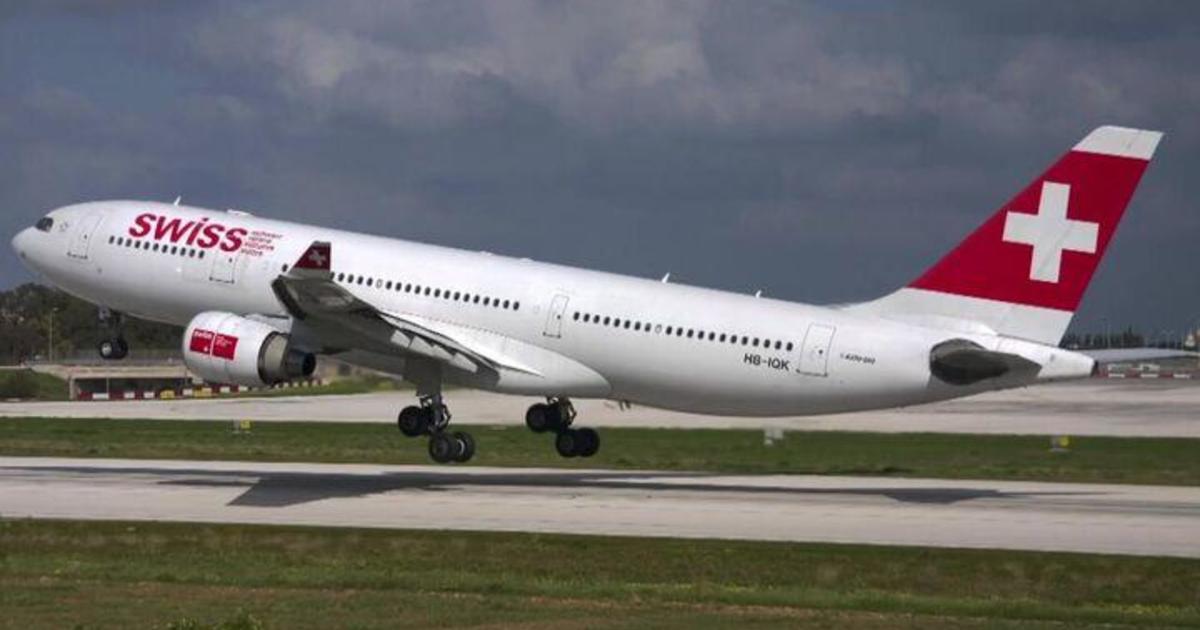New York, New Jersey Picked For Drone Testing Sites
LAS VEGAS (CBSNewYork/AP) -- New York and New Jersey are among several states selected by federal officials to develop test sites for drones -- a critical next step for the burgeoning industry that could one day produce thousands of unmanned aircraft for use by businesses, farmers and researchers.
Alaska, Nevada, North Dakota, Texas and Virginia will host the other research sites, providing diverse climates, geography and air traffic environments as the Federal Aviation Administration seeks to safely introduce commercial drones into U.S. airspace.
Virginia and New Jersey submitted a joint application with testing being performed at Virginia Tech and Rutgers University.
"Today's announcement is a GREAT way to kick off the New Year, promising significant economic opportunities in the aviation field particularly for South Jersey," Rep. Frank LoBiondo, R-N.J., chairman of the House Aviation Subcommittee, said in a statement. "A years-long effort has been spent on putting forth the strongest application -- including forming a solid working partnership with Virginia - to ensure the FAA recognized our existing assets for this project."
Alaska, Hawaii and Oregon also submitted a joint bid.
New York's site at Griffiss International Airport in Oneida County will look into integrating drones into the congested northeast airspace. Sen. Charles Schumer, D-N.Y., called the announcement a boon for the state.
Members of Congress and other politicians lobbied intensely to bring the work to their states. Representatives were jubilant about the likelihood that the testing will draw companies interested in cashing in on the fledgling industry.
An industry-commissioned study has predicted more than 70,000 jobs would develop in the first three years after Congress loosens drone restrictions on U.S. skies. The same study projects an average salary range for a drone pilot between $85,000 and $115,000.
Drones have been mainly used by the military, but governments, businesses, farmers and others are making plans to join the market. Many universities are starting or expanding curriculum involving drones.
The FAA does not currently allow commercial use of drones, but it is working to develop operational guidelines by the end of 2015, although officials concede the project may take longer than expected.
The FAA projects some 7,500 commercial drones could be aloft within five years of getting widespread access to the skies above America.
The competition for a test site was robust, with 25 entities in 24 states submitting proposals, FAA Administrator Michael Huerta said during a conference call with reporters.
At least one of the six sites chosen by the FAA will be up and running within 180 days, while the others are expected to come online in quick succession, he said. However, the designation as a test site doesn't come with a financial award from the government.
In choosing Alaska, the FAA cited a diverse set of test site locations in seven climatic zones. And Nevada offered proximity to military aircraft from several bases.
Tests will determine whether drones can detect and avoid aircraft and other obstacles, and if they can operate safety when contact is lost with operators.
"These test sites will give us valuable information about how best to ensure the safe introduction of this advanced technology into our nation's skies," Transportation Secretary Anthony Foxx said in a statement.
The growing use of drones has sparked criticism among conservatives and liberals who fear the creation of a surveillance state in which authorities track and scrutinize every move of citizens.
"I just don't like the concept of drones flying over barbecues in New York to see whether you have a Big Gulp in your backyard or whether you are separating out your recyclables according to the city mandates,'' said Sen. Rand Paul, R-Ky., referring to a New York City ban on supersized soft drinks.
Paul has introduced a bill that would prohibit drones from checking for criminal or regulatory violations without a warrant.
Huerta said his agency is sensitive to privacy concerns involving drones. Test sites must have a written plan for data use and retention, and will be required to conduct an annual review of privacy practices that involves public comment.
That policy provided little comfort for the American Civil Liberties Union.
"Someday drones will be commonplace in U.S. skies and, before that happens, it's imperative that Congress enact strong, nationwide privacy rules,'' ACLU attorney Catherine Crump said in a statement.
You May Also Be Interested In These Stories
(TM and © Copyright 2013 CBS Radio Inc. and its relevant subsidiaries. CBS RADIO and EYE Logo TM and Copyright 2013 CBS Broadcasting Inc. Used under license. All Rights Reserved. This material may not be published, broadcast, rewritten, or redistributed. The Associated Press contributed to this report.)



